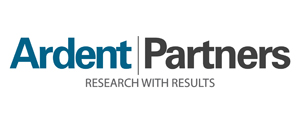According to the US Small Business Administration, in 2009 (the latest available data) there were about 27.5 million small businesses in the U.S, approximately 6 million of which have employees with the remainder being sole proprietorships. It is safe to assume that a significant chunk of small to mid-sized businesses (SMB’s) suffer from highly manual and paper-based processes, a lack of control and visibility and poor management of cash, making this a very large and very attractive market.
For many years, technology providers in the accounts payable (AP) and procure-to-pay (P2P) world have focused on the Global 2000, for valid reasons. However, many of them and a number of newcomers over the last few years are now paying attention to the SMB market. The newcomers, unlike the larger players who have traditionally focused on the buyer, are focused on both the AP and AR side of the business, allowing customers to receive payments, submit invoices and payments and manage cash all without the implementation of an expensive IT solution.
The last 5-7 years, as cloud-based solutions have grown and become more mainstream, has seen a number of new entrants to the B2B eInvoicing and electronic payments space with a specific focus on the SMB market. Which at the very small end includes businesses that are processing less than 100 invoices/payments a month.
When I look at the data we’ve gathered in our research at Ardent, it is clear that even though SMB’s are not processing a huge amount of invoices on a monthly basis, the cost per invoice is still relatively high. However, this is not the main factor driving SMB’s to automate their AP and/or AR processes. The main driving factor is gaining more visibility and having greater control of cash inflows and outflows, while having access to accurate data and analytics. Most would argue that getting paid on-time (or quicker) and managing cash flow are two of the most critical factors of successfully running businesses of this size. They’re not that concerned about how much an invoice costs to process, they just want to make sure that it gets to them and is processed in a timely manner so that they have full visibility into payables or in the case of AR they want to ensure that invoices are generated and submitted in a timely fashion so as not to delay payments. This can make a huge impact on collection of receivables, appropriately managing outflows and improving (or at least visibility into) cash flow.
Moreover, these SMB’s are realizing that relying on paper-based processes and documents is terribly inefficient and does not cut it anymore because the alternative (cloud-based automation) is much easier now than it has ever been. These cloud-based solutions offer a much higher level of visibility due to the data they are able to gather and the improved management controls they offer, something that is just not available with manual/paper-based processes.
Another factor driving this is the fact that most businesses of this size typically don’t wish to pursue long and complex IT implementations and they don’t have the resources required to do so. They’re looking for solutions that they can quickly sign up for, do not require (or offer) customization, have a pay as you go model and are quick and simple to deploy. This also means that their appetite for lengthy integrations to their internal systems (be it NetSuite, Quickbooks, Sage, etc) is low.
To give you a few examples of what I’m talking about, here are some of the solutions that are focused on B2B invoicing and payments in the SMB market:
Bill.com offers the capability for SMB’s to better manage their AP and AR processes, allowing them to invoice customers (eInvoice), get paid, make payments and most importantly, manage cash. Bill.com offers three main pricing models, all of which come with various features $24/month for a solo user, $49/month for a team (up to 5) and $89/month (up to 15)
PaySimple.com offers three main capabilities to its customers, the ability to accept multiple forms of payment, the ability to automate billing (including eInvoicing) and manage customer information. The eInvoicing product is available for $11/month and their billing and payment product PaySimple Pro is $34.95/month plus transaction fees. The company also provides white-labeled products to partners such as AcceptPay for American Express and Zip for Ink from Chase
NvoicePay takes a vertical market approach offering mid-market companies in targeted vertical markets the ability to execute electronic payments. The first vertical market the company has focused on is automotive and truck dealerships via a partnership with ADP dealership services. NvoicePay’s revenue is based on per-transaction fees.
Tradeshift which is a mix between a social network for B2B transactions combined with an ‘app’ platform. The network allows companies to create and submit eInvoices (free to suppliers), receive Instant Payments (once the customer accepts the invoice on the platform) and do much more through a series of independent ‘apps’ that have been developed on the platform.
We have also seen the larger providers (e.g., Ariba and Basware) go down market with their solutions and earlier this year (March 2012) Bottomline Technologies announced an agreement to acquire the commercial banking business of Intuit, which it hopes will allow them to serve the many small to mid-sized financial institutions and their clients.









1 Comment